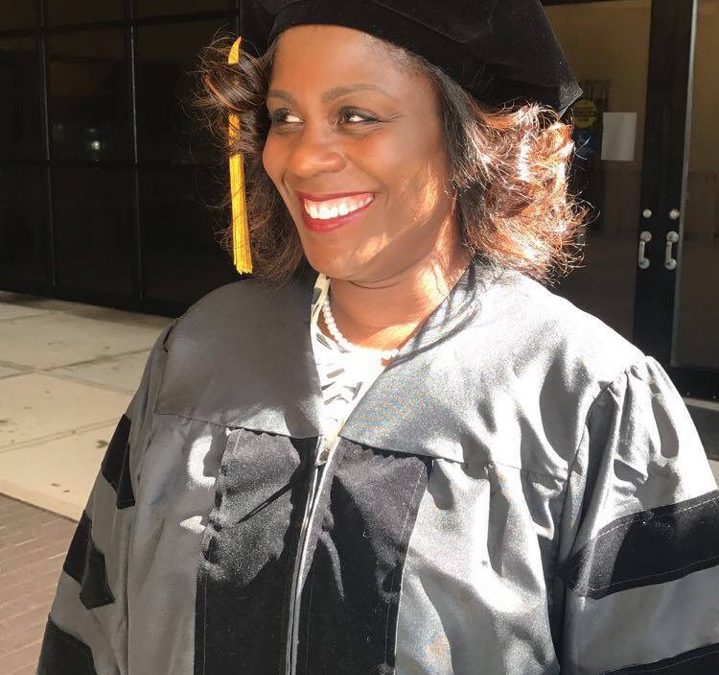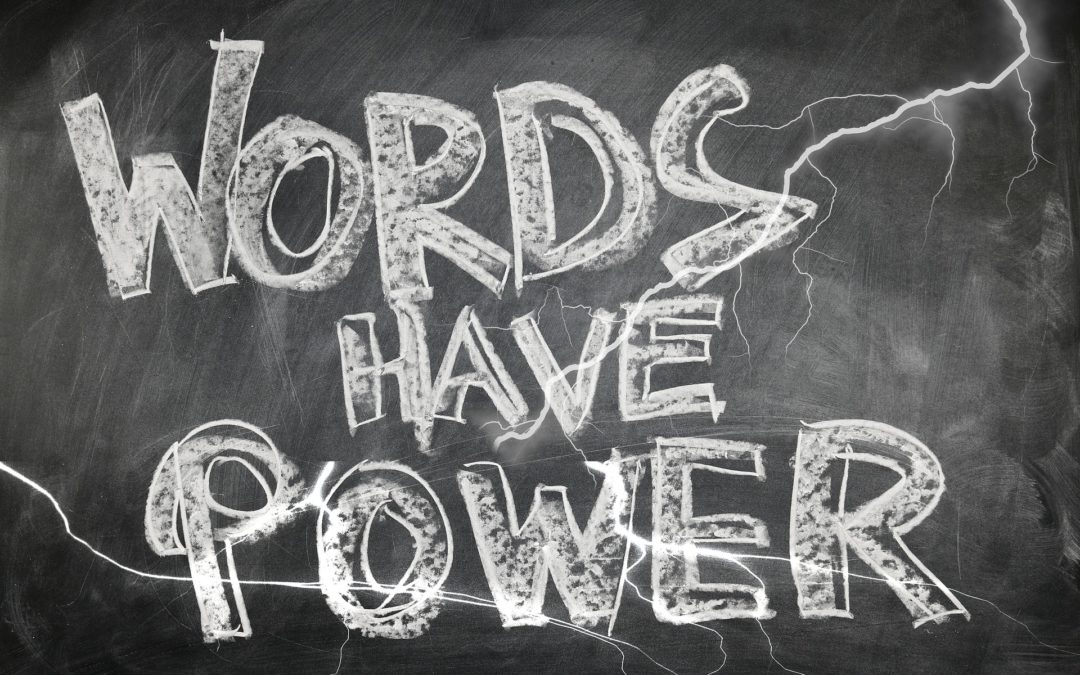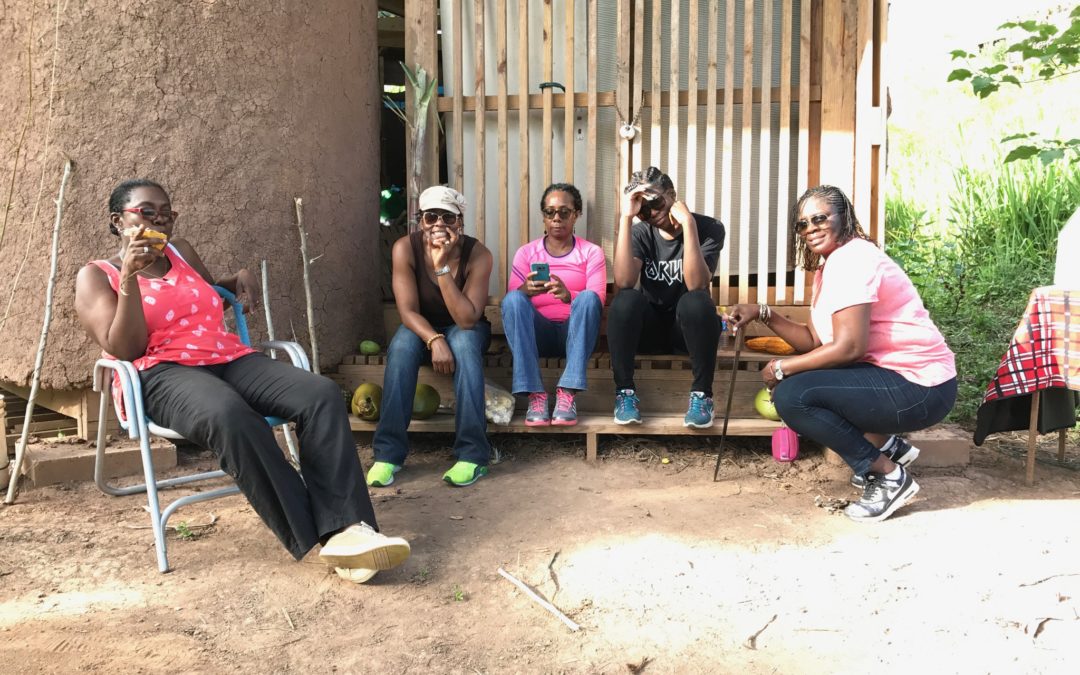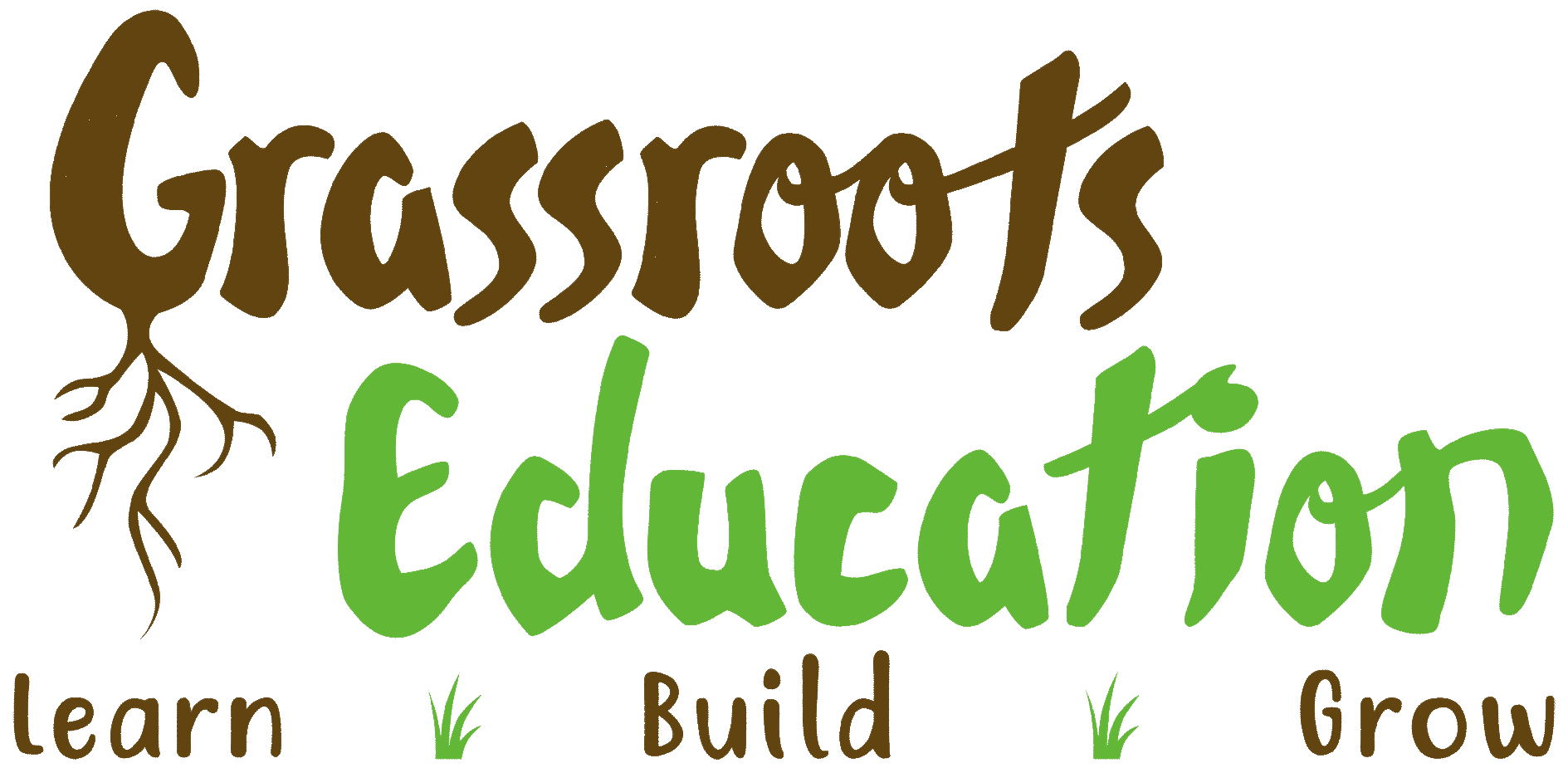
by Marcia Davis-Dawkins | Jan 23, 2018 | Education, Kids, Parents, Teachers
The Hurt Child

By Marcia Davis-Dawkins
In all likelihood, probably no adult is more trusted by children who have been abused than a loving, caring teacher. Teachers have the unique opportunity to identify abused children and start the healing process. To do so, however, they must be able to discern the signs of a child in distress.
We often think of pain and hurt as physical phenomena, or as the presence of uncomfortable feelings. Pain and hurt, however, encompass more than just concrete affliction. This is best witnessed in the case of emotional pain. Larry James once said, “Emotional abuse is just as damaging as physical abuse. The only difference between the two is with physical abuse you are wearing it on the outside for the world to see and the other is felt deep inside. Others cannot see the bruises on your heart.”
As educators we have all seen students suffering from emotional maltreatment. These are the students who are constantly belittled and rejected and who endure the absence of a positive emotional atmosphere. They may be verbally abused or have inadequate parenting, sometimes bordering on neglect. They may be secondary victims, those who have witnessed firsthand domestic violence and even death of a family member. As such they demonstrate delays in emotional development and manifest immature behavior.
One of the most noticeable forms of abuse is physical. This expresses itself in the presence of bruises, burns, broken bones, or even internal injuries. These injuries are the result of slapping, punching, hitting, kicking, pushing, etc. These children are often easily startled, and often cringe in situations they consider fearful.
We have all had students who are obviously physically neglected. They may appear malnourished, lack adequate clothing, have poor hygiene and just seem to have no one who is concerned for his/her well-being.
And then there are those students who we suspect are being sexually abused. They may have been molested or exploited and lack the emotional and developmental ability to understand what has happened to them.
Teachers 
Often, as teachers, especially novice teachers, our focus is on teaching and learning. We are not trained as social workers or psychologists. Our goal each day is the intellectual advancement of our students. As such, we scratch our heads and wonder in frustration why this student doesn’t complete homework, why that student falls asleep in class, why another shows no interest at all. We do not take into consideration the baggage each child carries, the obstacles they face each day, their struggle to just survive. We wrongfully write them off as lazy or disrespectful, when instead we need to delve into the reasons behind the behavior and become their biggest advocates. We cannot sit on the sidelines and say that’s not what I was hired to do. Students are entrusted in our classroom for a reason—never by accident.
To offer support, we as teachers must be approachable so that students feel it is safe to tell us their stories. Actively listening is one of the best tools. School can be a place where children can rebuild their self-esteem, assert themselves and see themselves as successful. Abused kids often feel powerless to control much in their environment. Allowing expressions of feelings through art, music and creative writing helps release pent up emotions. Pointing out a student’s strengths helps one to gain a sense of self-identity and bolster self-esteem. They learn that they are valued, accepted and belong.
Additionally, Insight Learning, which is based in problem solving is particularly effective with abused children, as is Narrative Therapy. In this approach, children are helped to identify their values so that they can confront the problems they face.
Many times, in the situation of abused students, teachers are their only lifeline and reprieve. Let us realize that they are crying out to us for HELP and rise to the occasion. Don’t observe and do nothing. Your action can save lives!
It’s Gonna Be Okay!

by Marcia Davis-Dawkins | Jan 8, 2018 | Education, Kids, Parents, Teachers, Teens
I Can Do All Things
 By Dr. Marcia Davis-Dawkins
By Dr. Marcia Davis-Dawkins
Whenever a New Year begins people often reflect on the past year and set new goals that they want to accomplish. The intention may be to lose weight, eat healthy, begin college, or start a diet, among many others. Whatever it is, it usually calls for will power, self-talk, motivation or simply encouragement from friends or family. It takes some inner strength and dogged determination to achieve the goals which were set.
Motivational Speaker Jessica Cox
Take for instance, Motivational Speaker Jessica Cox. She has defied all odds by turning obstacles into accomplishments. Jessica Cox was born without arms as a result of a rare birth defect, but that has not stopped her from being a dancer, a swimmer, and driver of a car. Astonishingly , she drives a car without having to use her upper body. She uses her feet like most people use their hands, enabling her to drive an unmodified car with an unrestricted license. She can also type on a keyboard at twenty-five words per minute, pump her own gas, and to put in and remove her contact lenses. Additionally, she is a certified SCUBA diver. Jessica Cox also has her Sport Pilot Certificate for an ERCO 415-C Ercoupe, designed in the 1940s, which the Federal Aviation Administration has designated as a light sport aircraft. The plane that she flies was built without rudder pedals. Instead, the rudder interconnects with the ailerons through the yoke. This unique design allows Cox to control the airplane with one foot controlling the yoke, while the other foot controls the throttle.
After reading about Jessica Cox and her accomplishments, there is hardly anyone who can say that they wouldn’t be able to achieve whatever they conceive and believe. In a previous article, I discussed what it means to do self-talk . There is power and life in the tongue. Speak success into your life. Once there’s life, there’s hope. We should encourage each other with positive vibes. The sky is the limit and as educators we have to incite ourselves,as well as our students, to reach for the sky.
I Can
Jessica’s story has shown us adversities and challenges should not prevent us from trying and doing our best. Once we put our minds to accomplishing something, we can do it since we say “I Can” is in the phrase “I Can’t!” In the long run, challenges turn us into better people. How can an educator or a parent encourage a student or child to follow his or her dreams? We could help and introduce students to SMART goal setting, When we set goals they will be motivated, purpose will be improved and attention will be more focused. As educators we must give students positive feedback. Be a role model and use words that inspire and compliment. A single word can change a student’s life or dream. New year, new beginning ! We can redirect a student’s path to positively. Let us also walk in newness, strength and boldness! Remember as Napolean Hill once said, “Whatever the mind can conceive and believe it can achieve!” 
Determination and Perseverance

by Marcia Davis-Dawkins | Dec 4, 2017 | Education, Kids, Parents, Teachers, Teens
The Teacher Who Makes a Difference!!!
 By Dr. Marcia Davis-Dawkins
By Dr. Marcia Davis-Dawkins
Gail Goldwin once said, “Good teaching is one-fourth preparation and three-fourths theater.” It is not uncommon for teachers to spend many hours  grading papers, preparing lessons, entering grades in computers and just figuring out how to make a lesson fun and exciting to students. Those teachers who go above and beyond to help everyone they meet deserve hugs and the highest honors. To the teachers who have to wait for the custodians to open doors to the school every morning, this is for you. Because every time I feel like I’m early for work at 7 am, there are a few people who are already ahead of me, photocopying assignments for learning groups.
grading papers, preparing lessons, entering grades in computers and just figuring out how to make a lesson fun and exciting to students. Those teachers who go above and beyond to help everyone they meet deserve hugs and the highest honors. To the teachers who have to wait for the custodians to open doors to the school every morning, this is for you. Because every time I feel like I’m early for work at 7 am, there are a few people who are already ahead of me, photocopying assignments for learning groups.
Being Ready to Teach
By 8:35 am every morning those same teachers are ready to teach with creative, interesting, rigorous and thought-provoking lessons. Lessons that open the students’ minds, and not only encourage them to absorb facts, but acquire understanding.
Many years ago when I was hired to teach at an urban school district in New Jersey, it was hard to adjust to the new environment. But the same teachers who were up early in the morning to prepare, were the same ones who welcomed me, by having students write me letters of advice on how to become a wonderful teacher like the ones they already had. Since that day, it has been my quest to make my classes just as fun- filled and rigorous as their classes. It was William Ward who said, “The teacher explains, the superior teacher demonstrates, and the great teacher inspires.” The teachers who go above and beyond have motivated me and so many other faculty members to be the best teachers we can be by seamlessly weaving fun and custom wrapped methods which result in success for divergent personalities.
Having humility, patience and enthusiasm for the subject area is how inspirational teachers continue to do so well. They have high expectations for their students and the students enjoy the encouragement as they rise to the challenge. They provide a warm environment that allows their students to make mistakes.
On a professional level, these teachers are always willing to collaborate and make suggestions where needed. Great teachers do not say things like, “You’re really not cut out for this.” “This is not your thing.” They realize that students soon learn their own limitations and do not erect false ceilings up for them. Inspirational teachers have been consistently driving students to be the best that they can be for many years.
When a school is divested of such individuals, whether through attrition, retirement, reassignment, etc., everyone suffers. Sure, their positions may be filled, but they can rarely be replaced. There remains a resounding void, both in the classroom and in the hearts of those for whom their inspiration may have been his or her last hope. Teachers Who Makes a Difference
HOME
Get Notified About Our Blog Post Subscribe Below

by Marcia Davis-Dawkins | Nov 14, 2017 | Education, Kids, Parents
The Power of Words
By Dr. Marcia Davis-Dawkins
Growing up, I was often compared to many, including and especially to, one of my siblings. What is interesting about this situation is that I am the first of six. This meant that the comparison stung more than others because I should have been the one who served as the role model for my siblings.
Self-Confidence 
My self-confidence has been on a roller coaster ride to the extent that in my youth, many adult mentors chose to underscore my faults rather than encourage my proficiencies and potential. In other words, my accomplishments during those years were not expressed as ‘achievements,’ but rather any minute negative was highlighted, emphasized and broadcast to the world.
There is a very well- known verse in the bible that highlights the fact that there is life and death in the power of the tongue (Prov. 18:21 NIV). By extension, Deuteronomy 30:19 encourages the former, saying that we should choose life. Accordingly, when we speak to others, our words should speak life, not death. This way of life also has great rewards.
Another encouragement passed down through generations is “If you don’t have anything good to say, don’t say it!” Speak life to yourself and your students.
Rise above the negative utterances people have to say, and ensure that they do not bear fruit or are repeated. Only repeat words that are true and positive.
My heritage molded who I was destined to be, but I had to change my mindset from the consistently negative words inadvertently hurled at me so I could become prosperous and productive.
Like many things, change is difficult. I realize however, that there is the opportunity to be a beacon of hope for others to whom I am exposed. Self-motivation contributed significantly to my ability to spread the good news to my students. Justice Clarence Thomas once said, “The old man Can’t is dead, I helped to bury him.” In fact, I have those words hung in my room so that my students can share the experience. I have even had some of my students perform the burial of Mr. Can’t! I have literally seen the difference. I want them to treasure education just like a hungry man treasures food. I want my students to see learning/education as a way to grow – the same way food helps them grow. They can develop through education that will take them places. I find that often, the students give up too easily, and if I can encourage them positively through my words and my actions, then they will start to believe in themselves.
HOME

by James Burns | Nov 7, 2017 | Kids
 By James Burns – Contributor
By James Burns – Contributor
Going to a Catholic Grammar School for 9 years had its benefits. We had to wear uniforms so there wasn’t any clothes competition, we went to church all the time so we got some formal spiritual training, you couldn’t even think of using profanity because you thought the nuns could read your mind and would find out what you were thinking, we learned good penmanship, we were respectful, compliant, and responsible. The crazy thing is no one asked me to do any of these things, I was told to and at times I was forced to do them. It wasn’t like the nun said to me you can go to church if you like, or why don’t you try to hold your pencil this way, or is that the way to speak to someone? If I didn’t do it the way it was supposed to be done I would be held accountable and disciplined. As I look back at this experience the one thing that I realize is that this type of education taught me something that no one talks about today and that’s self-control. The majority of the problems that a person faces in their life are related to a lack of self-control. Everybody either eats too much, drinks too much, spends too much, can’t control their temper, wants things that they can’t have or can’t afford, and develops habits that they can’t break that could kill them or someone else like smoking or driving too fast.
Now why does this stuff happen? Well I never remember my parents or any teacher in my life saying to me the choice is yours you can smoke or not, or you can lose your temper or not, or you can overeat or not. Self-control is taught. If I did something that exhibited a lack of self-control I got grabbed by someone and got reamed out or in the worst case scenario the natural consequences of life caught up to me. I was taught to wait on line, raise my hand, take my time, practice until I got it right, memorize, and I got drilled on skills that everyone knew were necessary for life long success. Look, musicians practice endless hours to perform a single piece of music. Students study instead of watch TV. Athletes devote years of their lives to prepare for an Olympic event that may last only a few minutes.
The concepts of self-control, delayed gratification and discipline seem so counter to our cultural values. We use our credit cards because we want things right away. We become impatient if we wait more than a few moments at a drive-through at McDonalds. We eat ourselves into obesity and poor health because it feels good, with little consideration of the long-term consequences. Self-control should be graded in school and looked at as a quality necessary for success as an adult. If you or someone you know is having trouble with self-control I have a good friend named Sister Houlihan who still thinks self-control is important. She is 4 feet 8 inches tall and she can still make a grown man hold his pencil the right way.
The Bully Proof Classroom
James H Burns Associates
Anti Bullying Specialist
Educational Consultant
In-Service Provider – Keynote Speaker
Learn More on The Bully Proof Classroom Website
HOME

by Marcia Davis-Dawkins | Nov 7, 2017 | Education, Kids, Parents
 “A friend in need is a friend indeed!” I have been both privileged and blessed to have the same set of friends for over forty years! To me, that is an amazing accomplishment. I know that if I were to look up the definition of friendship, I would find words such as trust, loyalty, and support. According to Maslow’s Hierarchy of Needs, we all need to belong. We all need someone with whom to identify. We all long to be a part of something more considerable than ourselves, whether it be a family, a clique of friends, a religion, a group of co-workers, a choir, or unfortunately, even a gang. The idea is that we want to be an important part of something greater. Sometimes we yearn to belong to a group so we can cover our emotional pains. We hunger to know that people care about us, because in many ways, love heals. Friends protect us from being lonely, and comfort us when we are down and discouraged. Friends are also supportive and encourage fulfilling and rewarding conversations.
“A friend in need is a friend indeed!” I have been both privileged and blessed to have the same set of friends for over forty years! To me, that is an amazing accomplishment. I know that if I were to look up the definition of friendship, I would find words such as trust, loyalty, and support. According to Maslow’s Hierarchy of Needs, we all need to belong. We all need someone with whom to identify. We all long to be a part of something more considerable than ourselves, whether it be a family, a clique of friends, a religion, a group of co-workers, a choir, or unfortunately, even a gang. The idea is that we want to be an important part of something greater. Sometimes we yearn to belong to a group so we can cover our emotional pains. We hunger to know that people care about us, because in many ways, love heals. Friends protect us from being lonely, and comfort us when we are down and discouraged. Friends are also supportive and encourage fulfilling and rewarding conversations.
As an educator, it is my duty to teach my students how to care, one of the most important functions of being a good friend. I can do this through several areas, one of which is simply to know my students’ names. Some teachers find this task daunting, especially when assigned a roster of nearly one hundred students. But just as the time cultivating friendships in our personal lives reaps rewards, so will learning the children’s names. This sends the message to them that they are important, that we recognize them as individuals, and that they matter. It also builds a sense of community within the classroom. Not to do so makes we educators appear disinterested and unapproachable. Accordingly, why should the class be interested in us and more so, what we teach, when they don’t feel valued and recognized?
A caveat should be offered here, however. Students need teachers who inspire them to grow and be more than they are today, not an imitation of their current selves. Some teachers, in a misguided effort to be “friends” with their students, dress and act like their students. A true teacher/friend remains clearly adult, promoting learning and offering insight.
Another way of showing that we care is to demonstrate compassion. Some people believe that a compassionate classroom lacks academic rigor, but it is just the opposite. When students feel that they belong and are genuinely cared about, they are more likely to take on challenges. They know that even if they fail, they will be buoyed by support and encouragement. Methods such as short conversations and kneeling down next to a student for discussion while making eye contact garner far better results than yelling and looming menacingly overhead. By showing compassion, the student will eventually reciprocate that same behavior, to fellow classmates and friends alike. Just as we don’t write off our friends after a small disagreement, we should also have a forgiving heart with our students. Each day starts with a clean slate, and we never know how that simple act of thoughtfulness can impact a student’s life.
HOME
Determination and Perseverance







 grading papers, preparing lessons, entering grades in computers and just figuring out how to make a lesson fun and exciting to students. Those teachers who go above and beyond to help everyone they meet deserve hugs and the highest honors. To the teachers who have to wait for the custodians to open doors to the school every morning, this is for you. Because every time I feel like I’m early for work at 7 am, there are a few people who are already ahead of me, photocopying assignments for learning groups.
grading papers, preparing lessons, entering grades in computers and just figuring out how to make a lesson fun and exciting to students. Those teachers who go above and beyond to help everyone they meet deserve hugs and the highest honors. To the teachers who have to wait for the custodians to open doors to the school every morning, this is for you. Because every time I feel like I’m early for work at 7 am, there are a few people who are already ahead of me, photocopying assignments for learning groups.


 By James Burns – Contributor
By James Burns – Contributor